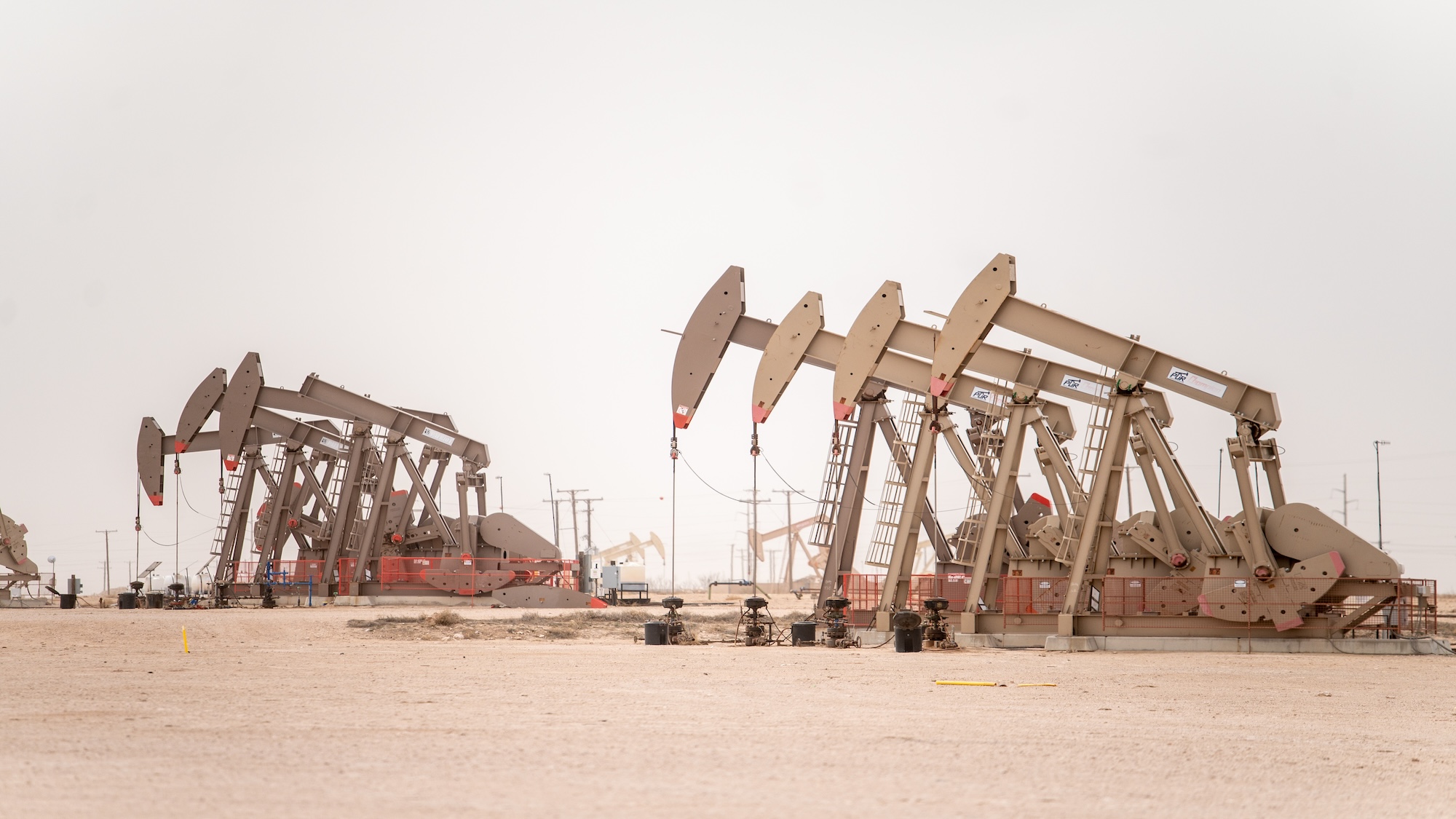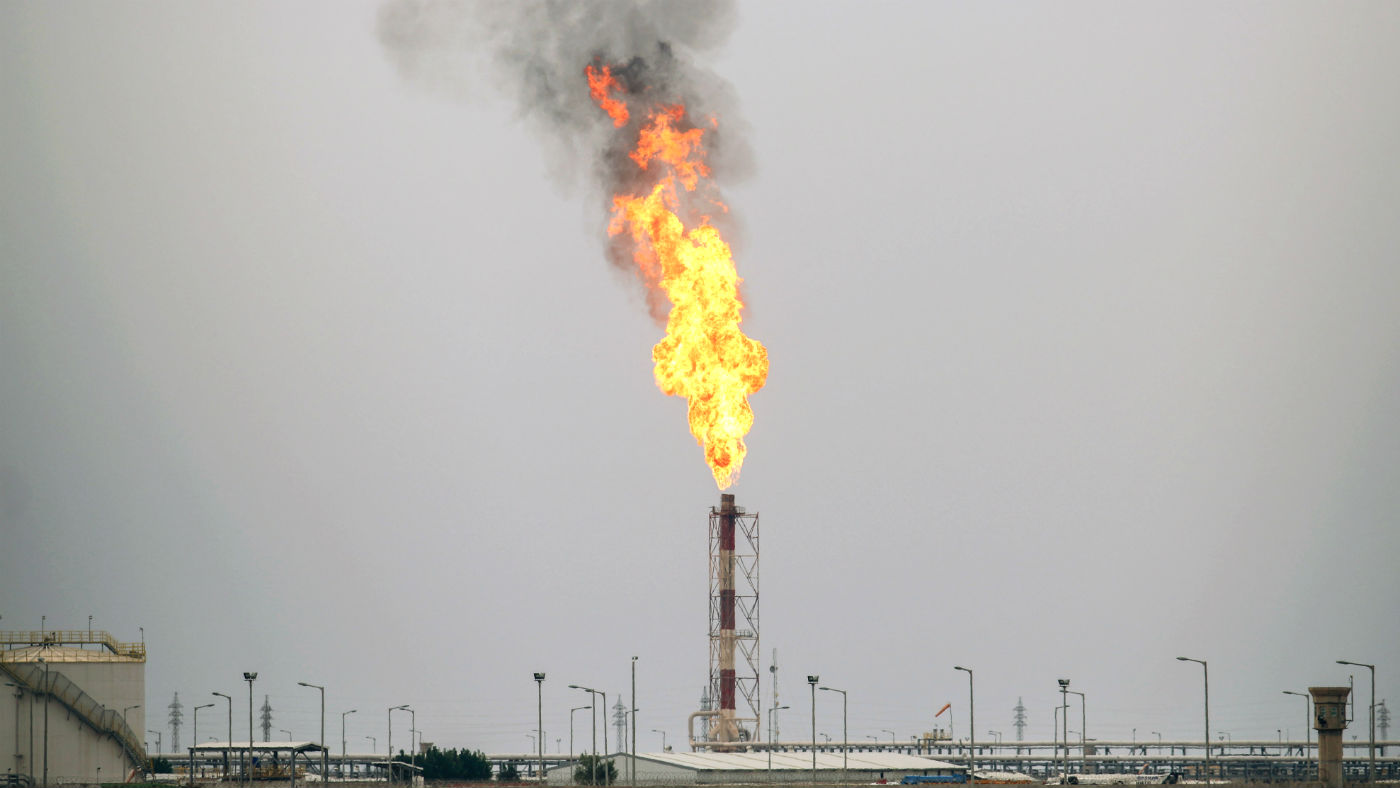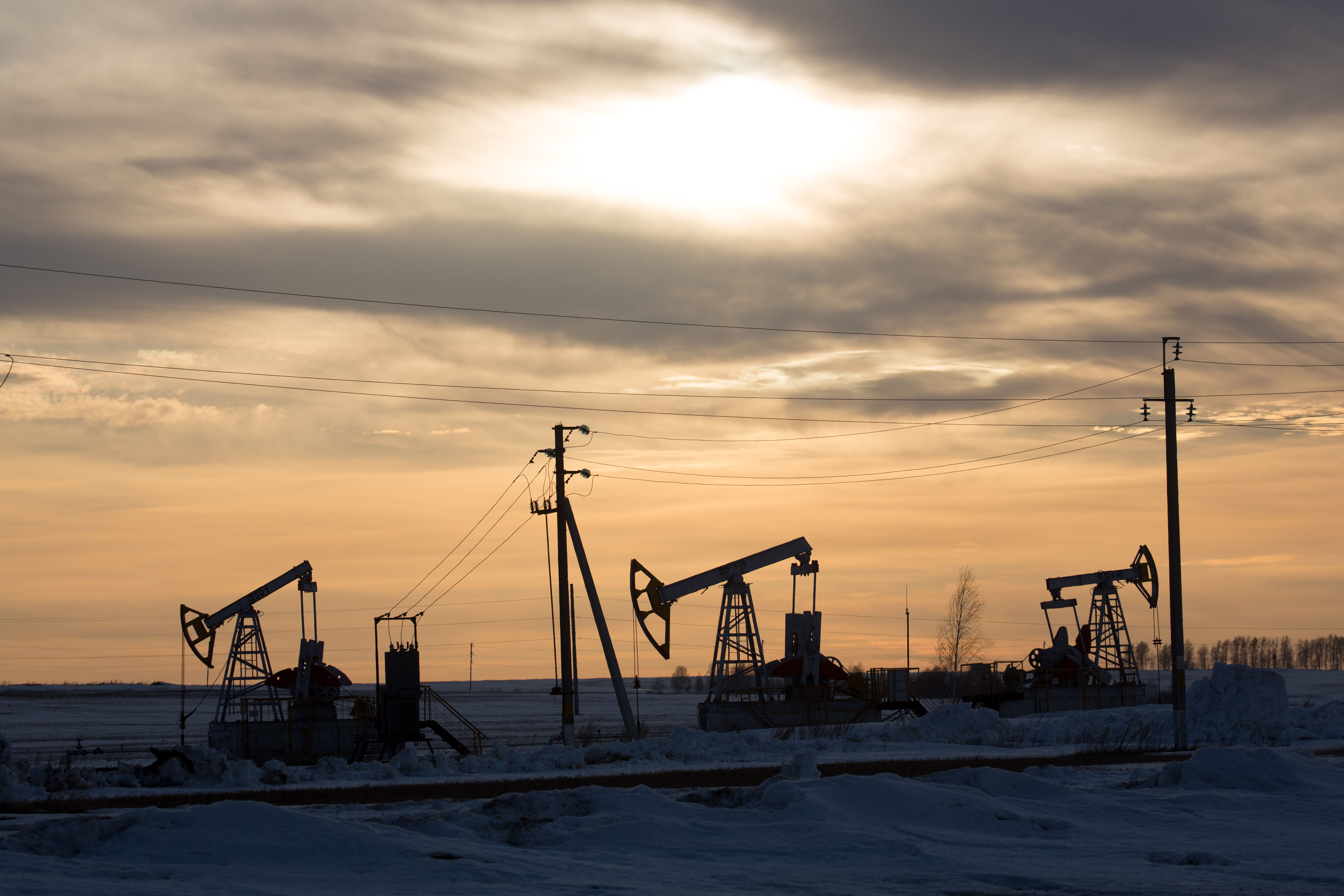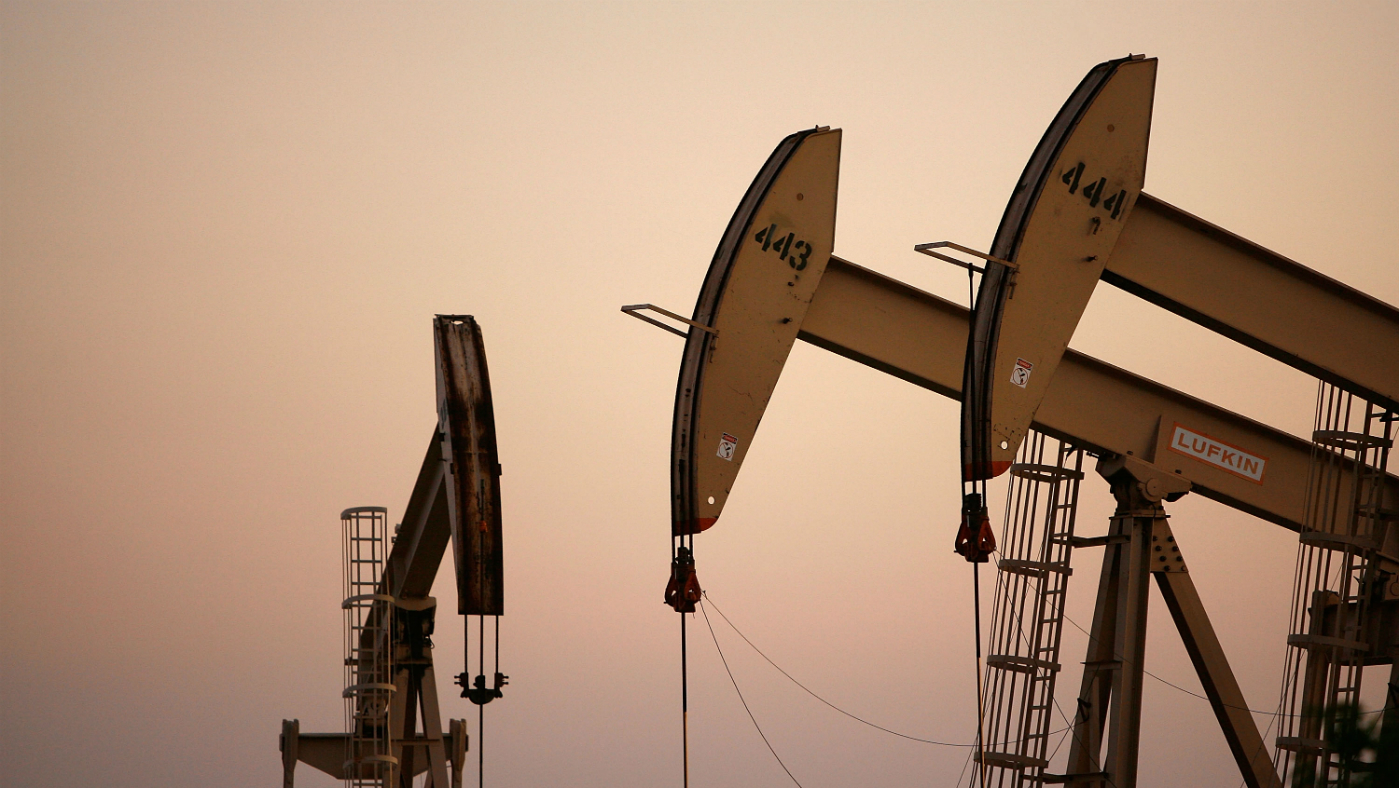Oil price posts two-year highs - but how long can it last?
Brent rose above $59 a barrel this week, its best third-quarter showing since 2004

A free daily email with the biggest news stories of the day – and the best features from TheWeek.com
You are now subscribed
Your newsletter sign-up was successful
Oil price falls despite Hurricane Harvey floods
30 August
The price of crude oil fell again this morning as devastating floods continued to batter the oil city of Houston, Texas.
As UK markets opened, West Texas Intermediate (WTI) was down 16 cents on its previous close, at $46.28 per barrel. In London, Brent Crude fell by 21 cents in early trading but recovered to $51.99 per barrel by 8.36am, one cent down on yesterday's closing price.
The Week
Escape your echo chamber. Get the facts behind the news, plus analysis from multiple perspectives.

Sign up for The Week's Free Newsletters
From our morning news briefing to a weekly Good News Newsletter, get the best of The Week delivered directly to your inbox.
From our morning news briefing to a weekly Good News Newsletter, get the best of The Week delivered directly to your inbox.
Storm Harvey, which has flooded an area of Harris County half the size of Greater London, is now moving on to Louisiana. The US National Hurricane Centre warned: "Catastrophic and life-threatening flooding continues in southeastern Texas and portions of southwestern Louisiana."
The storm, and the hurricane which preceded it, have forced US oil producers to shut down their rigs, although they are now beginning to resume production after the bad weather moved onshore.
That might have increased the price of oil – less oil produced means higher prices – but the opposite has happened as the bad weather is decreasing the current demand for oil by a huge margin.
On Monday, the commodity suffered a three per cent drop in value, its worst one-day fall in almost two months – and it dropped again yesterday. There are two reasons for this slump, says CNN.
A free daily email with the biggest news stories of the day – and the best features from TheWeek.com
First, ten oil refineries along the coast of the Gulf of Mexico had to be shut down completely as the storm approached – and at least one has been left damaged. According to Reuters, the largest refinery in the US – at Port Arthur in Texas – shut down last night.
Other refineries that have stayed open are not operating at full capacity because the supply chain bringing them oil has been interrupted.
The second reason for the slump is that America's fourth-largest city is largely underwater, meaning demand for petroleum – and even airline fuel – is significantly reduced. According to FGE Energy, quoted by CNN, Houston's current situation reduces demand for crude oil in the US by 150,000 barrels a day.
Goldman Sachs estimates the storm's eventual impact on demand for oil will be greater than its impact on production, warns CNN.
Oil price gains ground as US reserves drop
16 August
The oil price rallied from three-week lows last night and earlier today after a report that boosted claims that the market is moving towards a balance between supply and demand.
Brent crude, the international oil price benchmark, was up 0.7 per cent this afternoon at $51.15 a barrel. It was languishing at around $50.30 a barrel yesterday.
Its US counterpart West Texas Intermediate was 0.4 per cent higher at $47.75 a barrel.
The trigger for the rebound is a report from the private sector group the American Petroleum Institute (API), which claims that crude oil reserves in the US fell by 9.2 million barrels last week, says MarketWatch.
That's more than double the projected drop anticipated in the official weekly report that will be published by the Energy Information Administration later this evening.
Analysts are currently projecting the official dataset will show a drop of around 3.6 million barrels. OM Financial's Stuart Ive says an overshoot of the scale of the API release could send the US oil price back above $50 a barrel.
US inventory data has lost a degree of its value in recent months as traders express concern about data that show near-record reserve levels elsewhere and reports that global supplies are rising ahead of demand.
Traders are especially anxious about the rising output from US shale oil fields and excess supply from the Opec cartel that's ahead of its pledged production cap.
But such a wide overshoot will undoubtedly inject some optimism into the market.
Oil price dives on strong dollar, weak Chinese data
15 August
The oil price fell by more than 2.5 per cent yesterday and was trading lower again in London this afternoon as concerns about China, the world's second largest oil user, knocked trader sentiment on supply.
Brent crude, the international oil price benchmark, was trading at a two-month high near $54 a barrel earlier this month. But overnight it dropped by 2.6 per cent. At the time of writing, it was down a further 0.9 per cent to $50.30 a barrel.
Its US counterpart West Texas Intermediate suffered a drop in excess of 2.5 per cent overnight and was down 0.7 per cent today, to $47.25 a barrel.
Part of the reason for the falls was the sizeable 0.4 per cent rebound in the dollar index, which measures the US currency against a basket of six peers, as tension between Donald Trump and North Korea's Kim Jong-un seemed to ease.
But another trigger was seen to be data from China that shows a "steeper than expected" drop in oil refinery runs in July, which in turn suggests a "glut of refined fuel products" in the country that could "weaken Chinese demand for oil", says Reuters.
Elsewhere US data issued yesterday points to a rise in shale oil production starting in September. This will help push the country towards an estimated ten million barrels per day of output by next year.
On the supply front, Reuters reports that the Nigerian subsidiary of Royal Dutch Shell has announced it has lifted a force majeure on some exports from the country.
Despite falling US reserves in recent weeks, all of this gives a sense that the global market remains over-supplied and will remain over-stocked following years of excess production.
The Chinese data is especially important. A report from the Opec cartel last week identified rising demand as the one bright point in the market after it admitted its own output was 400,000 barrels above its pledged cap.
-
 ‘Restaurateurs have become millionaires’
‘Restaurateurs have become millionaires’Instant Opinion Opinion, comment and editorials of the day
-
 Earth is rapidly approaching a ‘hothouse’ trajectory of warming
Earth is rapidly approaching a ‘hothouse’ trajectory of warmingThe explainer It may become impossible to fix
-
 Health insurance: Premiums soar as ACA subsidies end
Health insurance: Premiums soar as ACA subsidies endFeature 1.4 million people have dropped coverage
-
 How might the Israel-Hamas war affect the global economy?
How might the Israel-Hamas war affect the global economy?Today's Big Question Regional escalation could send oil prices and inflation sky-high, sparking a worldwide recession
-
 Recent mega-mergers could signal a turning point for the US oil industry
Recent mega-mergers could signal a turning point for the US oil industryTalking Point Both Chevron and Exxon have recently spent billions to acquire smaller oil companies
-
 Has Saudi Arabia lost control of oil prices?
Has Saudi Arabia lost control of oil prices?Today's Big Question Kingdom goes it alone to cut production, risking tension with US and reigniting cooling inflation in Europe
-
 US angered by Opec+ oil cut
US angered by Opec+ oil cutSpeed Read Energy prices to rise further as producers slash supply by two million barrels a day
-
 Global oil demand forecast lowered for 2020 and 2021
Global oil demand forecast lowered for 2020 and 2021Speed Read IEA report says jet fuel demand remains the major source of weakness
-
 Are US-Iran tensions flaring again?
Are US-Iran tensions flaring again?In Depth Trump threatens military action over Twitter
-
 Can a deal be struck to raise oil prices?
Can a deal be struck to raise oil prices?In Depth Opec+ will convene today over video link in a bid to boost crude
-
 What do negative oil prices mean?
What do negative oil prices mean?In Depth Perfect storm of oversupply and storage shortages sees producers paying to get rid of US crude